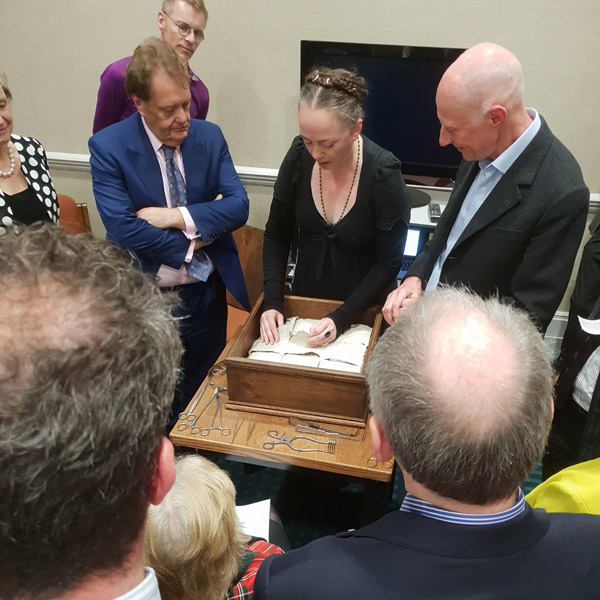A new APPG has formed to drive craft up the agenda.
Summary of inaugural event held 16th October 2018
Houses of Parliament.
CHEAD and partners at the All-Party Parliamentary Craft Group attended the launch of a new advocacy group. The mission of the group is ‘To enhance the understanding and promotion of craft in the UK and to ensure that craft skills are supported and passed on to future generations’. The APPG is Chaired by the Rt Hon John Hayes MP a former Skills Minister, with Sharon Hodgson MP, Sir Michael Fallon MP, Baroness Garden, Lord Cormack and the Earl of Clancarty as Vice-Chairs. We will meet in Westminster once per parliamentary term, with the secretariat provided by the Heritage Crafts Association.
Through presentations and roundtable discussions, the first ever event of its kind was attended by c50 craft designers, artists, makers, and policy makers to explore collectively what could be done to inspire more people to understand and appreciate the significance of craft to our cultural heritage, the importance of craft skills in fields as diverse as science, surgery, dentistry, engineering and the urgent need to preserve and sustain endangered crafts through knowledge transfer, skills development and reinvestment.
During the evening we learnt that cricket balls are no longer stitched in the UK, science owes a debt of gratitude to glassblowers and jewellers, surgery and lace making are intertwined, corsetry is the beautiful application of engineering and materials science, gold and silversmithing underpins dentistry and, how orthopaedic surgeons need stonemasonry and woodcarving skills.
Craft skills extend beyond making and are essential for haptic learning, developing dexterity and observation skills through intense engagement with creative practices and processes. However, in policy terms, Craft can fall between the two political domains of Art, which is often associated with the innovation and forward looking approaches to modern challenges, and Heritage, which is currently associated with preserving the physical rather than intangible assets that demonstrate our culture. This can lead to Craft being overlooked in policy and funding decisions thus leaving the sector vulnerable.
Solutions the Group will be exploring include looking at innovative ways to utilise apprenticeship funding, tax breaks for R and D and knowledge transfer, platforms that bring groups together through points of connection, legislation surrounding the authenticity of the Made in Britain maker’s mark, and, most importantly, demonstrating the impact and resonance of Craft across multiple disciplines through collaboration and knowledge exchange.
A top priority is to lobby for the UK to sign up to the UN Convention on Intangible Cultural Heritage. This would ratify our strategic approach to sustain the Red List of Endangered Crafts to ensure heritage craft viability and a shared purpose to avoid the cultural loss that is borne each time a craft dies.
The role of education is paramount to the Group. Concerns were raised over the loss of high-level skills within crafts and allied crafts and the role of Higher Education to both preserve and innovate in this area. Sheffield Hallam University, amongst others, was praised by artisan Grace Horne – a self-proclaimed ‘Craft Engineer’ and alumnus who was able to pursue her knife and scissor making business through the MA programme and unlimited access to the workshop facilities at the University.
The Group is keen for systematic collaboration with CHEAD, and to maximise shared links to the Crafts Council, CIF and NSEAD. We will continue to keep members updated on progress. In the meantime, if you have a particular contribution or insight to make please contact Sandra Booth Director of Policy and External Relations.
You can download the Full Report on the Radcliffe Red List of Endangered Crafts here.

